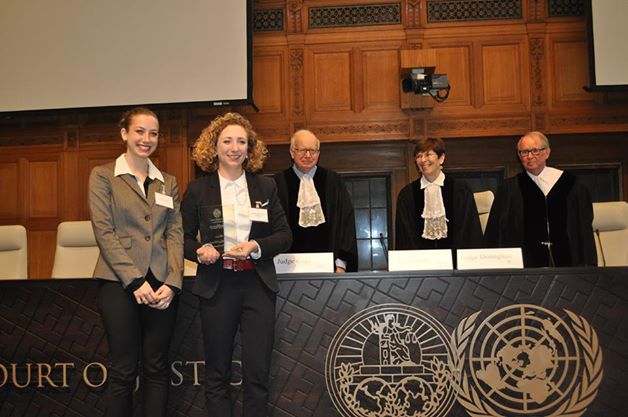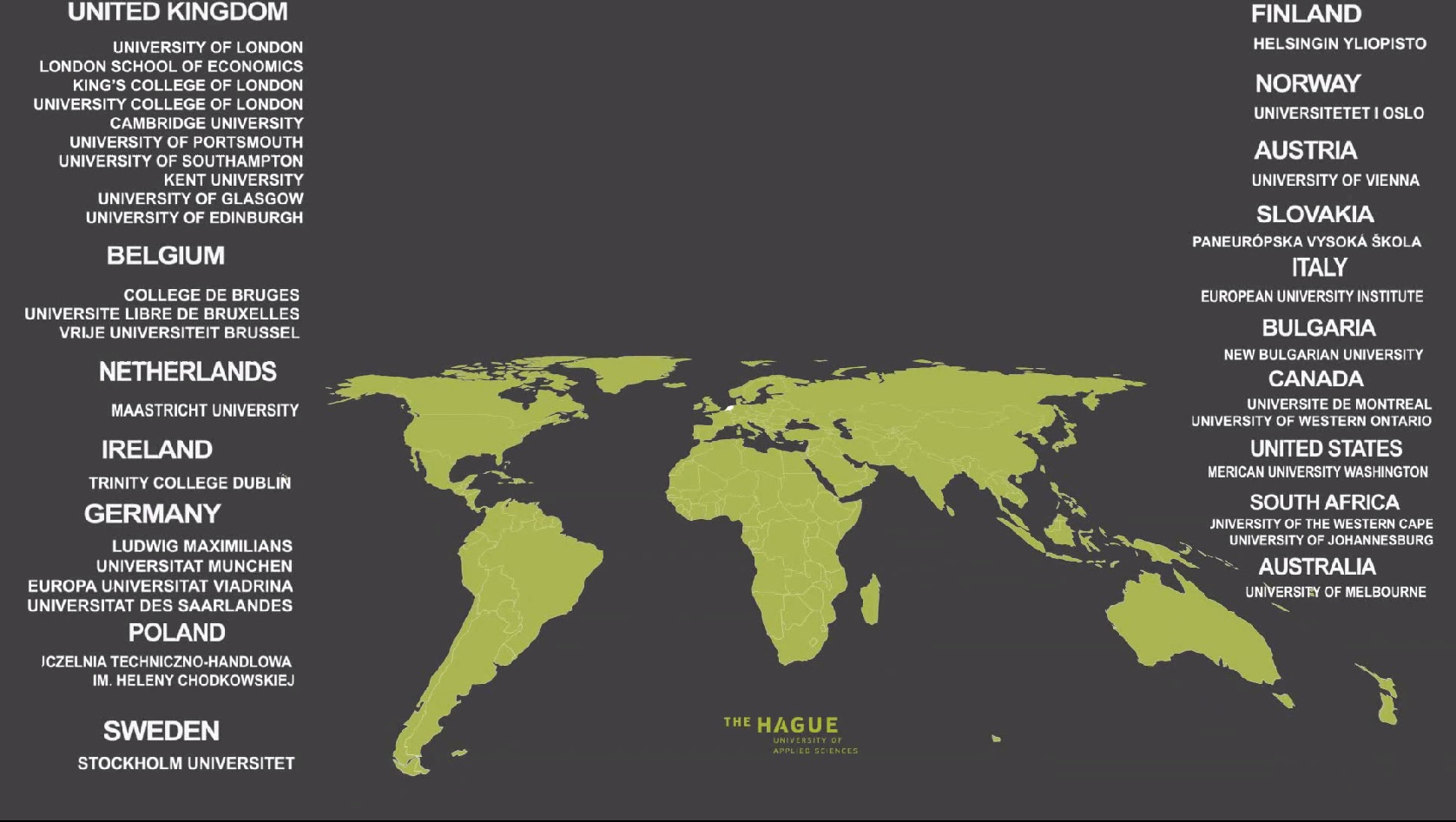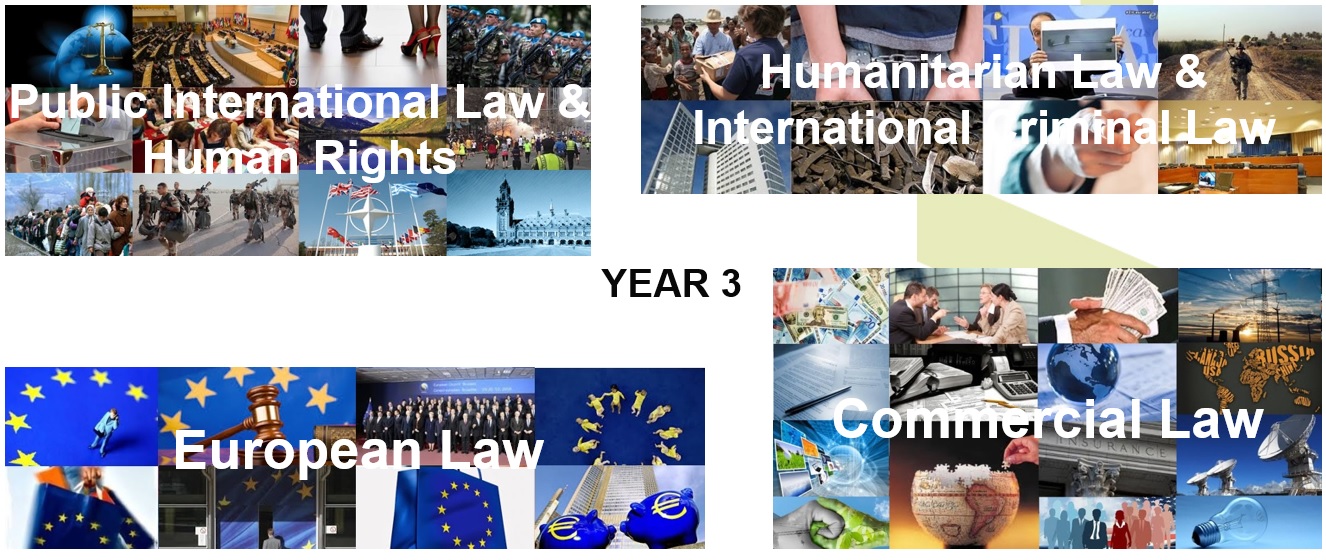
About the LAW Programme

In April 2014, Maria Della Porta Rodiani and Olivia Flasch won the Telders International Law Moot Court Competition at the Peace Palace in The Hague.
ALUMNI ACCEPTED TO MASTER’S PROGRAMMES OF TOP UNIVERSITIES IN MORE THAN 17 COUNTRIES AROUND THE WORLD
In 2011, the first students graduated from the International & EU Law Programme. Several went to Maastricht University, some went
abroad, mainly in the UK to pursue a Master Programme. In 2014, alumni have ended up all over Europe and the rest of the world, with more than 17 countries accepting our students.
Alumni keep coming back to visit their former lecturers at The Hague University after the end of their studies, while they start their career.
They consider it to be important to share with the new generation of students their experiences, successes and mistakes. As the network is expanding and we are more than happy to see them graduating from prestigious universities, we keep inviting them to the Employment Network Event, which is a moment for alumni reunions and also to look for new employment opportunities for themselves.


1ST PLACE IN THE ELSEVIER RANKING AMONG THE BACHELORS OF LAW PROGRAMMES IN THE NETHERLANDS 2014
In September 2014, for the first time, the International & EU Law Programme has been evaluated as the best Bachelor of Law programme out of 20 programmes in the Netherlands, achieving 66 points (grade significantly above the average grade of all the Bachelors of Law in the country), ahead of Radboud Nijmegen University (65 points), Royal Groningen University (63 points) and Leiden University (62 points).
LARGE CHOICE OF SPECIALISATIONS
– Commercial Law
– European Law
– Public International Law & Human Rights
– International Humanitarian Law & International Criminal Law


FUNDAMENTAL KNOWLEDGE & SKILLS TAUGHT WITH COURSES & PROJECTS
In Year 1 and in Year 2, students are gathered in groups of 15 students (tutor groups) and they meet their tutor each week, meaning more than 32 times during the academic year, to discuss assignments, project tasks, and study & career coaching.
These sessions, known as tutorials, are essential to keep the students on the right track of their studies, but also to help them feel the similarity between their individual & group works with the daily life
of a legal officer in a company, a law firm, a public authority or an association. Students are trained to draft contracts, write speeches, prepare a memorandum to a client, discuss initial steps of negotiation… real tasks asked for in the work field!
Tutors, before teaching in the LAW Programme, practice as lawyers, prosecutors, lobbyists, researchers, etc. at prestigious organisations and institutions. They all consider students as potential employees
of these places.
 English
English
 Nederlands
Nederlands
